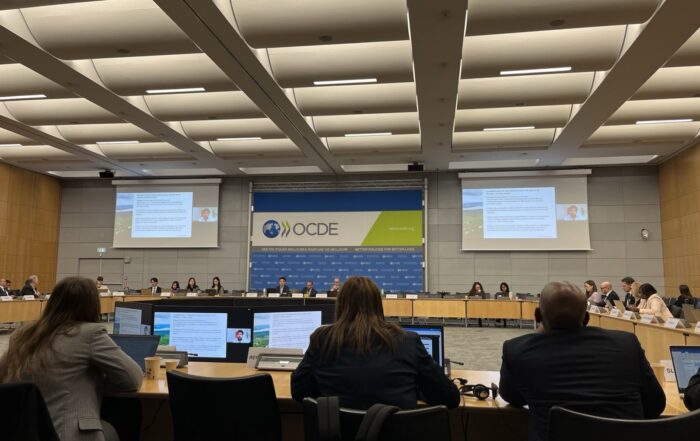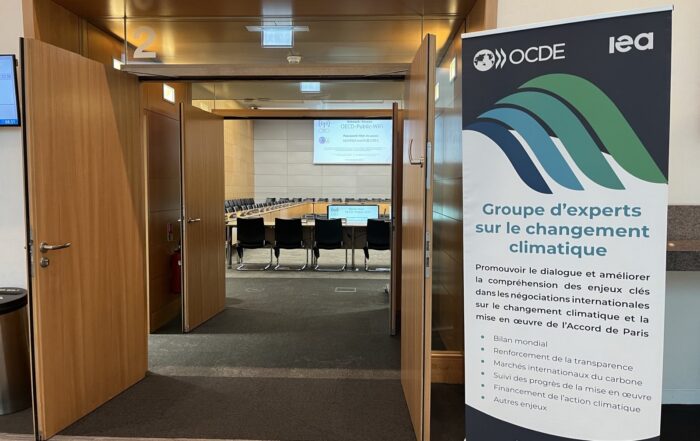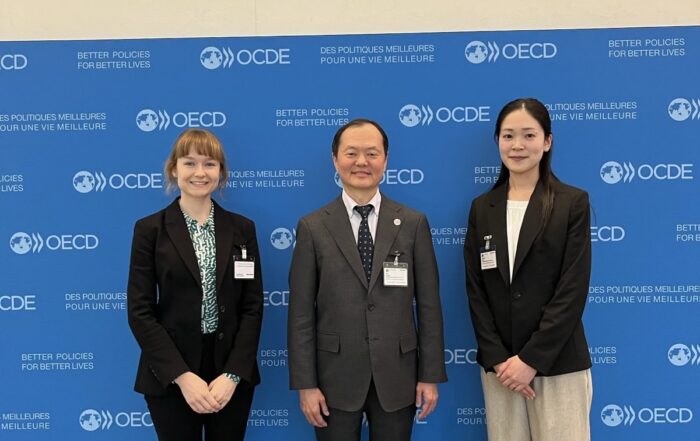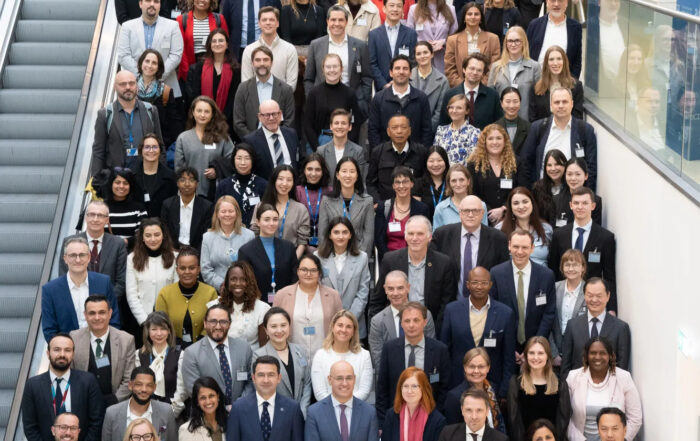Jointly organized by the OECD (Organisation for Economic Co-operation and Development) and IEA (International Energy Agency), the Climate Change Expert Group (CCXG) Global Forum serves as a platform for promoting dialogue and enhancing understanding of key issues related to international climate change negotiations and implementation of the Paris Agreement. It is held twice a year and informs discussions at the annual United Nations Climate Change Conferences (‘COPs’).
ICEED attended the first CCXG Global Forum of this year, which convened a diverse group of international stakeholders on March 18–19, 2025, at the OECD Headquarters in Paris, France. Stakeholders included representatives from the COP28–30 Presidencies—the United Arab Emirates (UAE), Azerbaijan, and Brazil—negotiators and practitioners from both developed and developing countries, and experts from intergovernmental organizations, research institutions, think tanks, and NGOs.

The forum centered on two key themes:
- Adaptation indicators under the UAE-Belém Work Programme—i.e., finding harmonized metrics to measure progress across different countries in adapting to the impacts of climate change.
- Early insights from biennial transparency reports (BTRs) to support the development of more ambitious, nationally determined contributions (NDCs)—i.e., non-binding national commitments to keep the rise in global surface temperature to below 2°C above pre-industrial levels.
Discussions around climate change adaptation indicators highlighted the importance of designing robust and inclusive metrics to track progress toward the Global Goal on Adaptation (GGA). Participants discussed how these indicators could be integrated into the national Monitoring, Evaluation and Learning (MEL) systems, and emphasized the role of voluntary reporting in contributing to global assessments and sharing national experiences. Attendees also emphasized the need to balance global applicability with national relevance, while ensuring cross-cutting issues, such as gender and just transition, are reflected.
Following the first Global Stocktake (GST1) at COP28, which called for tripling global renewable energy capacity and doubling energy efficiency, the forum explored how various parties are beginning to respond, despite the absence of formal reporting guidance. Many are already leveraging indicators in their BTRs to frame their responses to the GST outcomes.
In tandem, the 2025 round of NDCs has been informed by the findings of the first Global Stocktake. In approaching NDCs, participants stressed that enhanced transparency is key to building trust and supporting mutual learning. They also identified critical needs: clearer technical guidance, stronger stakeholder engagement, and improved financial frameworks to overcome implementation challenges. In the context of waning global political and investor confidence for reducing greenhouse gas emissions and adapting to climate change impacts, the concept of the ‘investible NDC’ was also put forward and discussed as a means of spurring investment.

ICEED remains committed to engaging with global environmental experts through fora like the OECD and IEA, and will continue to contribute its expertise to advance effective, transparent, and economically sustainable policies to address climate change and mitigate its impacts.


